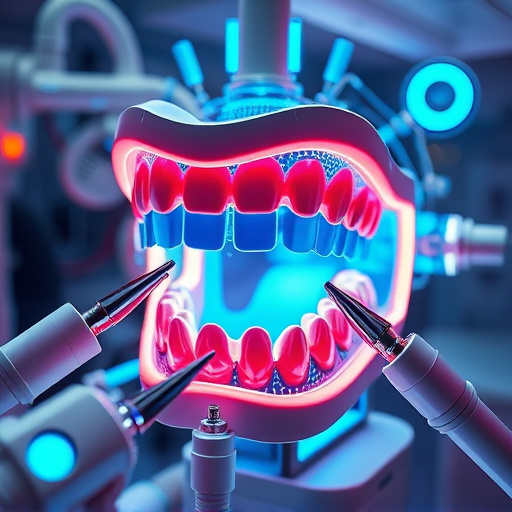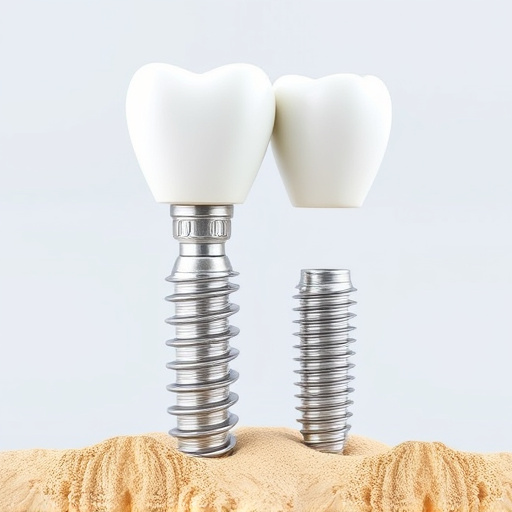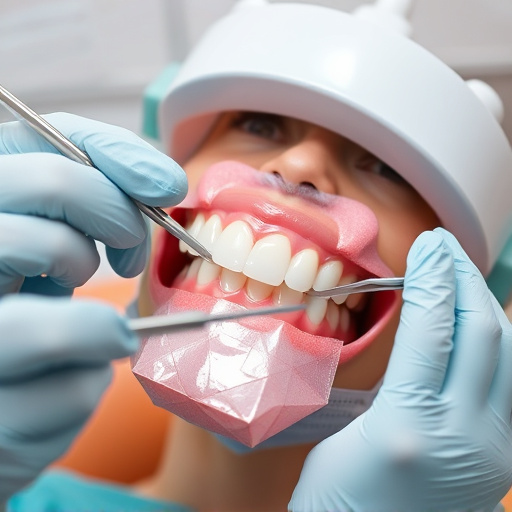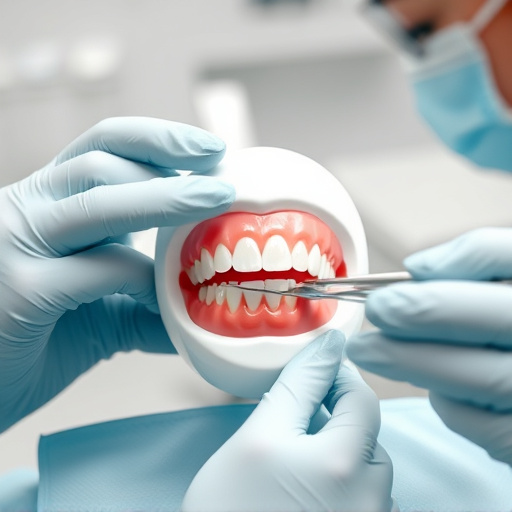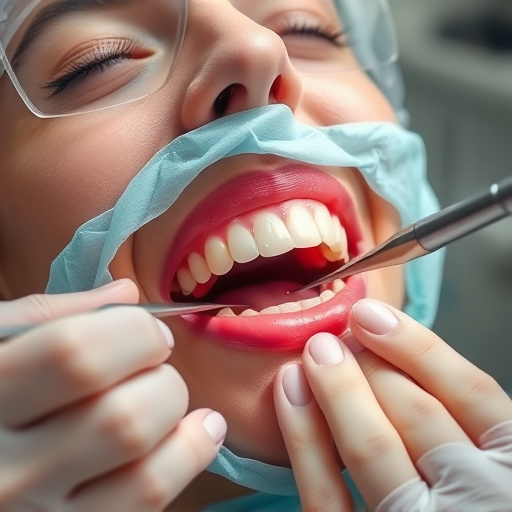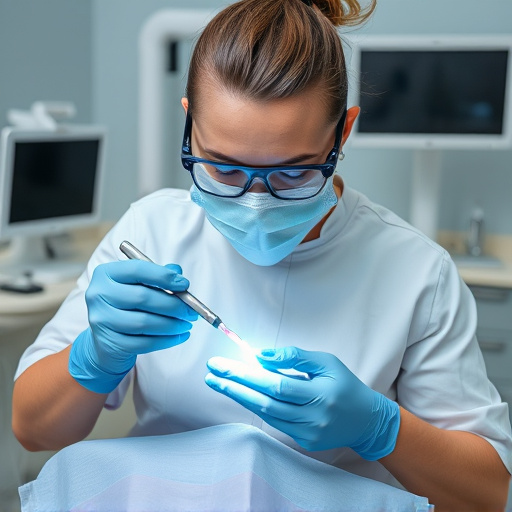Severe gum infections (periodontitis) require urgent attention due to poor hygiene, underlying conditions, or procedures. Antibiotic therapy treatment, through topical or oral methods, combats inflammation and tissue loss, preventing recurrence and cosmetic issues. Effective delivery methods and judicious antibiotic use are crucial for optimal results alongside regular dental care.
Antibiotic therapy treatment plays a pivotal role in stabilizing severe gum infections, offering a critical solution for maintaining oral health. Severe gum infections, or periodontitis, can have profound impacts on overall well-being due to their systemic effects. Understanding the causes and consequences is key. This article explores the role of antibiotic therapy in both treatment and prevention, delving into effective delivery methods for optimal results.
- Understanding Severe Gum Infections: Causes and Impact
- Role of Antibiotic Therapy in Treatment and Prevention
- Effective Delivery Methods for Optimal Results
Understanding Severe Gum Infections: Causes and Impact
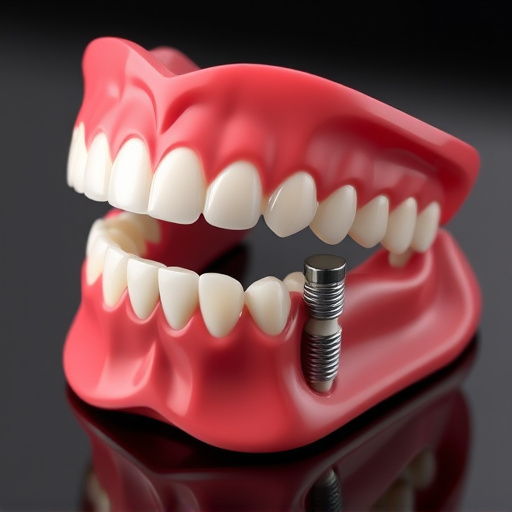
Severe gum infections, also known as periodontitis, are a common yet serious oral health issue that requires prompt attention. This condition arises when bacteria accumulate and irritate the gums, leading to inflammation and potential damage to the soft tissues and bones that support teeth. What starts as a mild infection can escalate into a significant problem if left untreated.
Several factors contribute to the development of severe gum infections. Poor oral hygiene, allowing plaque and tartar buildup, is a primary cause. Other risks include uncontrolled diabetes, certain medications, smoking, and even some medical conditions that compromise the immune system. Even seemingly unrelated issues like wisdom tooth removal or dental fillings can create an opening for bacterial invasion if proper aftercare is not practiced, emphasizing the importance of antibiotic therapy treatment in stabilizing such infections.
Role of Antibiotic Therapy in Treatment and Prevention
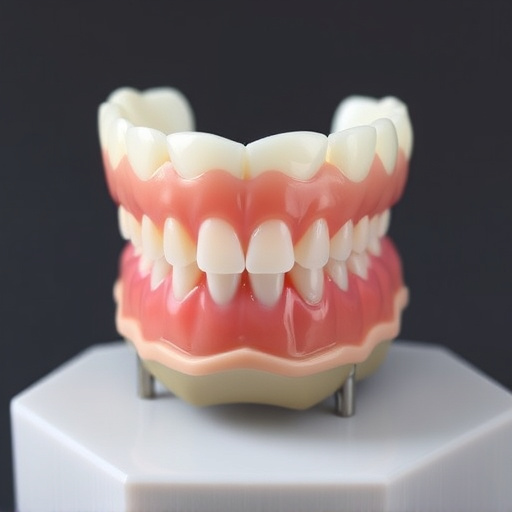
Antibiotic therapy treatment plays a pivotal role in managing and preventing severe gum infections, often seen in cases of periodontitis. This non-invasive approach is crucial in combating the spread of bacteria within the mouth, which can lead to damaging inflammation and tissue loss. By introducing specific antibiotics directly to the affected areas through topical applications or oral medications, this therapy helps restore balance to the dental ecosystem.
In addition to its curative effects, antibiotic therapy acts as a proactive measure in cosmetic dentistry, reducing the risk of recurring infections that could require more intensive restorative dentistry procedures later on. Regular dental cleanings and check-ups, alongside appropriate antibiotic therapy when needed, form an essential routine for maintaining optimal oral health. This holistic approach ensures not only the stabilization of gum infections but also long-term protection against periodontitis’ adverse effects.
Effective Delivery Methods for Optimal Results
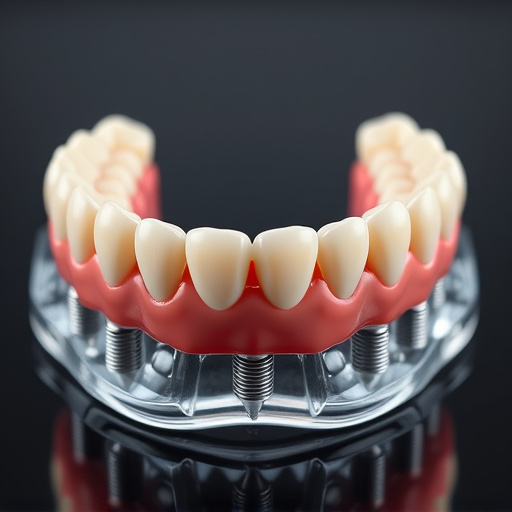
For optimal results from antibiotic therapy treatment for severe gum infections, effective delivery methods are crucial. Typically, topical administration is preferred as it directly targets the infected areas, minimizing side effects and enhancing efficacy. Gel or ointment formulations, for instance, can be applied directly to the gums, ensuring the active ingredients come into direct contact with the infection site. This method allows for a higher concentration of antibiotics in the affected tissue while reducing systemic absorption, thereby limiting potential adverse reactions.
In certain cases, oral antibiotics may be prescribed as part of comprehensive dental care and general dentistry practices. These include common antibiotics like amoxicillin or metronidazole, which are taken systemically to combat the infection throughout the body. While effective, this approach should be used judiciously, as overuse can contribute to antibiotic resistance. Cosmetic fillings, though not a delivery method per se, play a supportive role in stabilizing gum infections by restoring tooth integrity and reducing inflammation, thereby complementing antibiotic therapy treatment.
Antibiotic therapy treatment plays a pivotal role in stabilizing severe gum infections, addressing their root causes, and preventing further complications. By understanding the impact of these infections and employing effective delivery methods, we can ensure optimal results. Antibiotics not only combat bacterial growth but also help restore oral health, promoting overall well-being. Incorporating antibiotic therapy into comprehensive dental care is a game-changer in managing severe gum infections.




